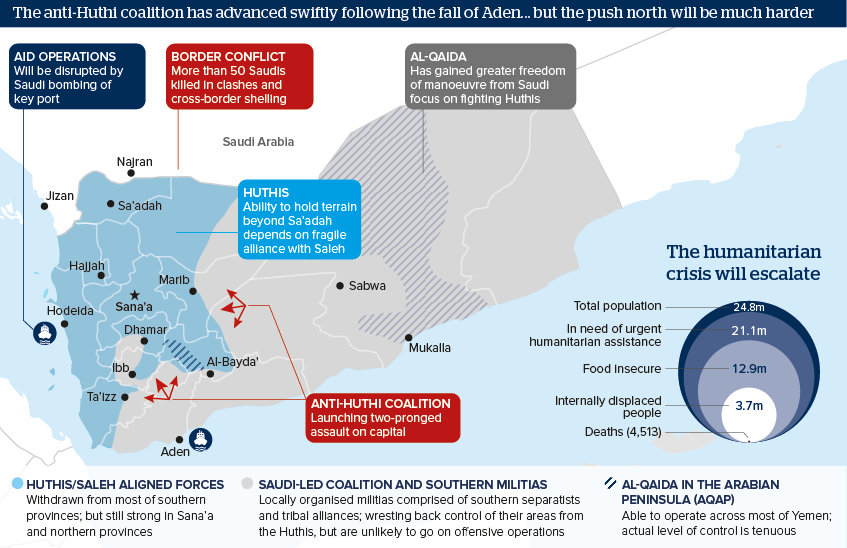Battle for Sana'a will test anti-Huthi coalition
For Saudi Arabia, defeating the Huthis is critical to its internal security as well as its rivalry with Iran

Source: Oxford Analytica sources, USAID, WHO
Outlook
By securing control of Aden last month, the Saudi-led coalition began to turn the tide against the Huthis. It is now seeking to dislodge them from Ta'izz and Marib to lay the ground for a two-pronged assault on the capital.
However, the coalition may swiftly find itself bogged down in a bloody battle for Sana'a and the north. Support for the Huthis and their ally, former President Ali Abdallah Saleh, is much stronger here than in the south; the coalition is reliant on a loose grouping of southern militias that are unlikely to want to fight beyond their own areas; and Saudi Arabia and the UAE have limited experience of major ground operations or urban warfare.
Impacts
- Winning the support of northern tribes and the al-Islah party is key to the coalition's campaign.
- The coalition's push north risks wide-scale destruction of Ta'izz and Sana'a.
- Conflict will weaken central government and increase demands for regional autonomy.
- Peace talks are unlikely to yield progress until the sides have been exhausted militarily.
- Credibility of new Saudi leadership rests on conflict's outcome.